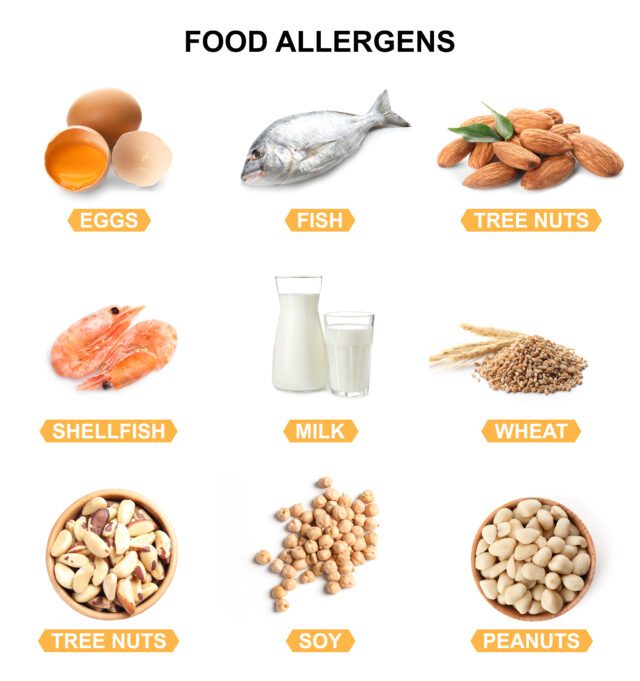You may have heard of people having negative reactions to certain foods like seafood or nuts, resulting in a swollen air-pipe or hives. But could food allergies be causing your upset stomach? According to research, your stomach discomfort (dyspepsia) is more likely to be caused by food intolerance rather than a food allergy. It’s easy to confuse a food allergy with food intolerance because they can have some of the same symptoms. Keep reading to find out the difference.
Food Allergy vs. Food Intolerance
Food Allergies
While you may be concerned that your upset stomach is the sign of a food allergy, it’s more likely that you’re simply experiencing food intolerance. In fact, true food allergies occur in only 2.5 percent of adults and roughly 6-8 percent of children (mainly under the age of six). Children will usually outgrow their allergies but if an adult has a food allergy it will generally stick with you for the rest of your life.
Food allergies involve a reaction with your immune system and generally have more severe symptoms than a simple upset stomach. Some of the symptoms of food allergies include skin rash, nausea, vomiting, cramping, and diarrhea. Often times these symptoms seem as if they are an upset stomach but usually end up being much more severe.
One definition of a food allergy is a chronic or immediate negative reaction to the ingestion of a certain type (or types) of food. In a broader sense, if the immune system is involved in the negative reaction, it is considered an allergic response. The body senses the problem and tries to fix what is wrong.
Food allergies can be extremely dangerous and may result in severe injury or become life-threatening if not addressed right away. An interesting note on allergies is that you are more likely to have one if someone else in your family has food allergies as well. So it could be considered hereditary.
Food Intolerance
Unlike food allergies, food intolerances cause mild symptoms such as an upset stomach. Some common food intolerances are lactose-related or a reaction to MSG (monosodium glutamate). There are also many other causes of an upset stomach such as medications, anxiety, eating spicy foods or foods that are high in fat.
One possible cause of an upset stomach that is often overlooked is a change to a person’s diet, and the symptoms can be more severe or noticeable if you change your diet drastically. For example, one major cause of an upset stomach when changing your diet can be switching from regular soda to diet soda. Your body may not be used to the artificial sweeteners that are used in the processing of diet sodas.
An upset stomach can also be the warning sign of a peptic ulcer (an ulcer of the stomach or duodenum) and occasionally cancer.
Even though an upset stomach is not likely the sign of a food allergy, it can still be a very aggravating experience. And although food intolerances aren’t generally life-threatening, they can adversely affect your lifestyle. If your tummy is angry on a regular basis, you may want to visit with your doctor or other healthcare provider to address the issue and rule out any potential health hazards.
Insider’s Health Exclusive –>>: Click Here to Find out The ONE “Weird Trick” that reduces your terminal disease risk by OVER 70% (and NONE of us are doing it)









